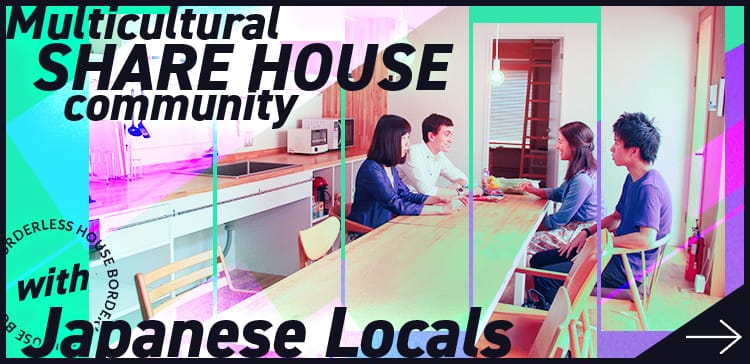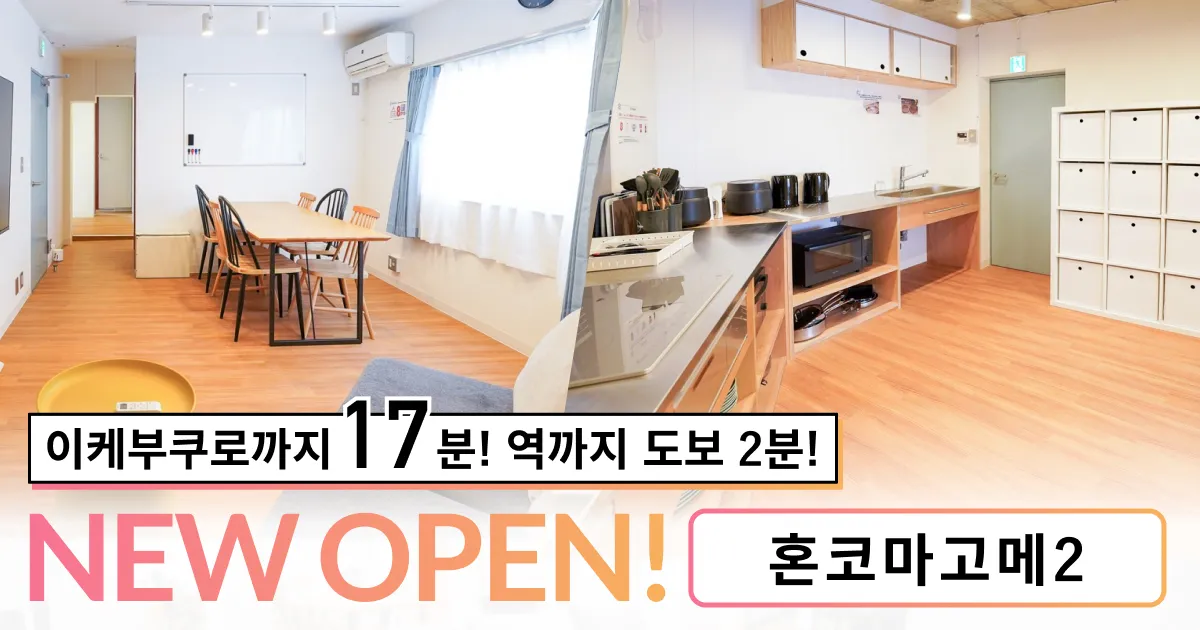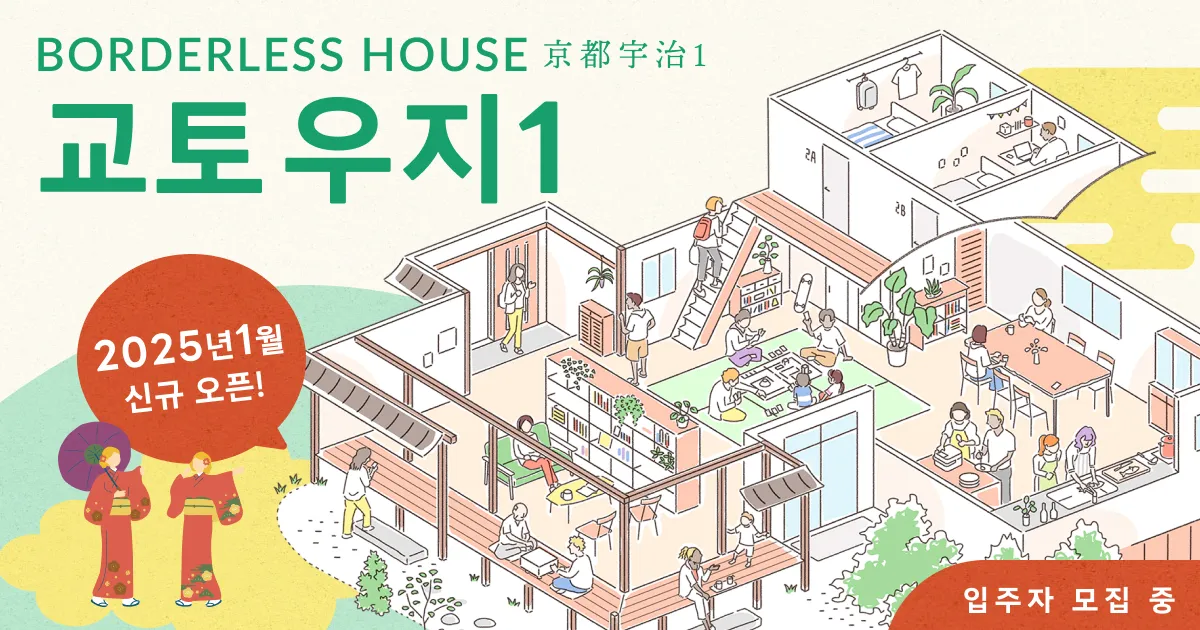NEWS&BLOG
보더리스 하우스의 최신 뉴스, 블로그 갱신정보
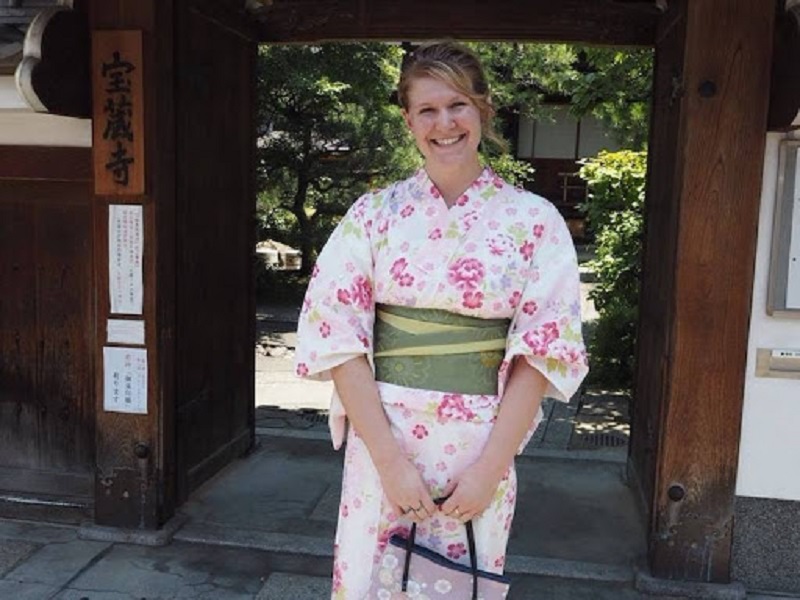
Hey guys! This is Claire from BORDERLESS HOUSE back with another blog. This blog is going to be a personal story of how I got interested in Japan and my own journey of learning Japanese. Hopefully, there will be many things you all can relate to, but I also hope that I can share some new information and shed new light on your thoughts about going abroad.
The Beginnings
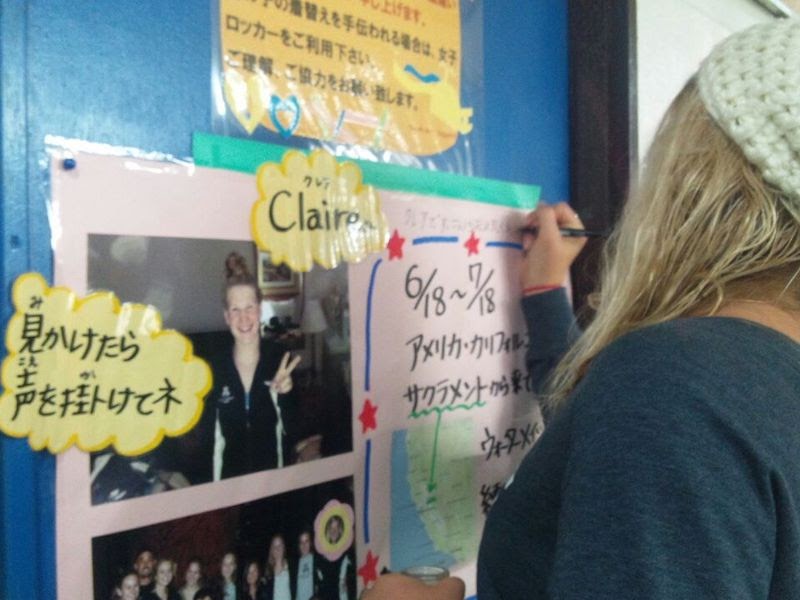
The first time that I came to Japan was in June of 2013 at the age of 15. I spent 28 days living with a host family in Yokohama through completely self-organized means. So, why Japan? The true answer to this question really is, “I don’t know.” What I do know is that at the age of 15, I wanted more than anything to have the opportunity to travel abroad, but this was difficult for me to do as I was a nationally-ranked competitive swimmer. Any time away from the pool could jeopardize my training, so going abroad was never an option for me. For many sports, such as soccer or basketball, there are pre-arranged international exchange programs which have reputable teams and carefully selected host families. Swimming is not one of those sports. Being the young 15-year old that I was, I was not going to let this massive barrier stop me and I began asking around my local swimming community to find connections to and contacts for international teams. My first breakthrough came quickly from my head coach in California who had the contact information of a coach from Yokohama in Japan. From that moment on, I decided I was going to try and make my way to Japan!
Now that I had located a reputable team abroad, my next challenge was that I spoke no Japanese, and knew nothing regarding the culture. By some miracle, my math teacher in high school spoke Japanese and with her help I was able to draft an email to this coach in Yokohama. Less than 24 hours later I had a positive response, and was told that I’d be assigned to a host family- all I had to do now was buy my flights. And that’s how I ended up in Japan for 1 month at the age of 15 with complete strangers. Coincidentally, during that month I also fell in love with all of the people that I met, and with the culture. I felt that I got to see a new side to swimming, and really to all of the aspects of life that I considered to be mundane back in the U.S. Things as simple as taking a ride in a car or going grocery shopping were all new and exciting. I finally felt like after 15 years of mindless patterns, I was filled with life and excitement.
Despite this now being my fourth time in Japan and, admittedly, I no longer have a host family to cook my meals, drive me around, or do my laundry, there is still a sense of wonder and awe that I feel when I am here. I feel alive and at home. If you need more convincing of the benefits of going abroad feel free to watch a short talk I gave to my peers at Harvard, and I hope that you will be filled with the same passion that I was.
Make It Work & Don’t Ever Settle
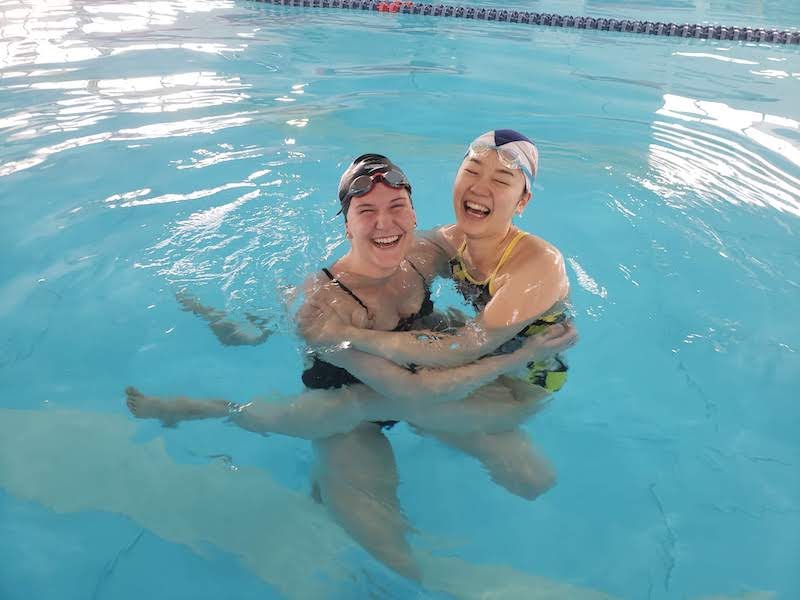
The moral of this whole story is that if you want to go to Japan, or go abroad in general, it is possible if you have the passion and the drive. Especially if you do not find any programs that fit your interests, don’t give up or settle for doing something you really don’t want to do. I have seen many people who have a passion for Japan and take any job that comes their way just to remain in Japan. Unfortunately, if you end up doing something that you are not excited about, it might bias your experience in a place that you once thought you loved. By all means, try and do what you love, in a place that you also love!
In cases where you are unable to find any programs that match your interests, networking will be your best friend. Find something that you want to do, whether it is studying, volunteering, or working, and start asking around. In my experience, if you send emails out of the blue to someone in Japan telling them that you are really interested in working with them, or learning from them, you will end up with one of three answers: 1) positive response, 2) referral to a similar colleague or opportunity or 3) no response, which really in the grand scheme of things isn’t so bad. When things are silent, it just means you have a few more people you’ll need to reach out to! Don’t get discouraged and keep trying.
Learning Japanese

After I returned from my first visit to Japan, I was still in a situation where I did not have any opportunity to take Japanese language courses at school. I additionally did not have the time to enroll in any language courses in my free time because I was constantly at swim practice. I simply picked up a copy of Genki, which I highly recommend for self-learning Japanese, and began to memorize and write hiragana and katakana. I self-studied on and off for about 2 years, but truly I had no serious hours set for studying and I only managed to teach myself the rudimentary writing, speaking and grammar basics. Another downside to self-learning Japanese is that you don’t have the opportunity to practice speaking naturally. There are two parts to learning a language: 1) memorizing vocabulary, grammar, etc, and 2) learning how to seamlessly put this knowledge into use. No matter how much studying you do, if you are unable to put your skills into everyday practice, all your hard work may not be reflected properly. This all being said, self-taught Japanese is an incredible feat and can be successfully done- I just recommend using more than just text materials to practice with. Going abroad or joining language exchange communities are excellent options!
One other opportunity that is missed by self-taught Japanese without going abroad is that you may miss out on a lot of cultural opportunities. Part of immersing yourself in another culture is not just learning the language, but also experiencing daily life and customs. I have been very lucky to have many amazing cultural experiences with my host families and housemates which have deepened my understanding of Japanese history and have made me feel welcomed into a country which is nothing like my hometown.
The next step of my learning journey occurred after my second visit to Japan in 2015. When I realized that Japan was becoming more than just a hobby and would be an interest that carried much further into my academic and working future, I decided it was time to take learning Japanese seriously. My university required all students to take a year of language courses, or to test out of this requirement. Rather than use my Spanish ability to test out of the requirement, I opted to take my first Japanese course.
From my previous two visits to Japan I had picked up some phrases and was familiar with basic grammatical patterns. This was massively helpful to my language learning journey as there were times during class when I was able to recognize my errors before having actually learned the correct grammar rule. Just as children pick up a language from infancy and are able to apply grammatical rules through pure imitation, I realized that my two previous visits to Japan had done the same for my own language learning. Because of this, I would highly recommend going abroad to Japan as early as possible in your language learning journey. The sooner you get native exposure, the sooner you will be able to recognize and apply both grammar and vocabulary. Many people feel that they cannot travel abroad before they are proficient in a language, but I would argue that the opposite is true. Go abroad in order to become proficient. An amazing way to get this native exposure, and one of the main ways that I maintained my Japanese after quitting language courses, was by immersing myself in the BORDERLESS HOUSE community. Being surrounded by people who want to share their cultures and languages fosters a community where you are encouraged to learn and practice. Living in such a supportive community will give you the resources and courage to reach levels of language ability that you never thought possible. You’ll also learn many things, such as the new and upcoming slang, that would otherwise not be taught in a classroom. After all, it goes without saying that textbook language and colloquial language can be quite different.
Personal Regrets
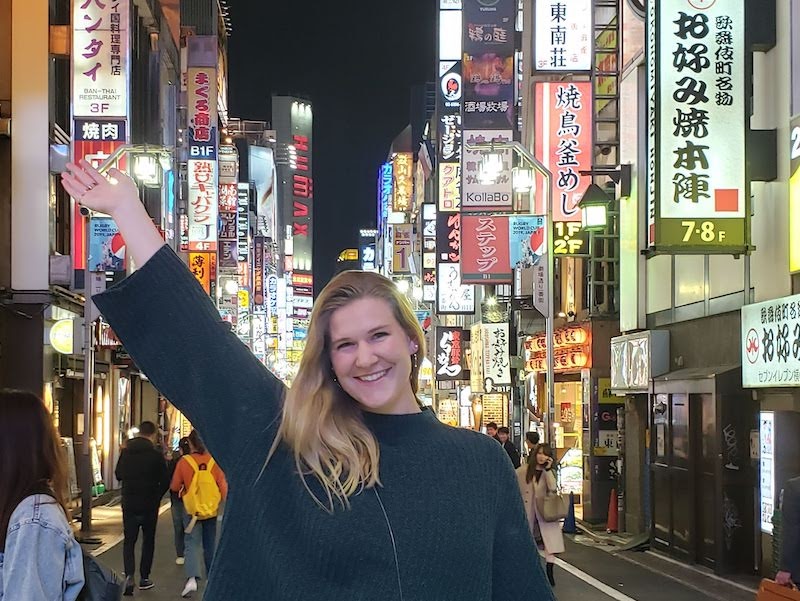
After my first year of Japanese, I, unfortunately, had to stop taking language classes as my schedule became too busy. To be honest, I never imagined that I would be living and working in Japan, which means that at the time, quitting Japanese seemed like the right choice. However, my biggest regret is having quit my language learning after only a year. Although I don’t have any issues communicating or living here now, I now find myself with terribly mismatched speaking and reading/writing ability levels which make Japanese class level placement next to impossible. I have also graduated from college now, so any language course that I pursue would generally take me away from time at my job.
I also never took the JLPT test, which is something that is highly regarded when searching for a job here. When I began my job search, I quickly realized that although I would have no issues with doing an interview in Japanese, I would never be invited for an interview if I did not have some proof of my Japanese language ability. Having some standardized proof of your language ability will be imperative for any foreigner trying to start their career in Japan, with the exception of course of becoming an English teacher!
In summary, my advice to you is that you take advantage of any opportunities you have to continue on with your language learning. Even if I had not ended up living and working in Japan, fluency in foreign languages is such an incredible skill to have. It shows passion, dedication, and can help connect you to international, or domestic, opportunities that you may have never considered. I have a long road ahead of me to get to full fluency, but I’m willing to do what it takes so that I can take this feeling of regret and make it an amazing success story.
Can I Get By Without Any Japanese? The answer is: Yes, absolutely!!
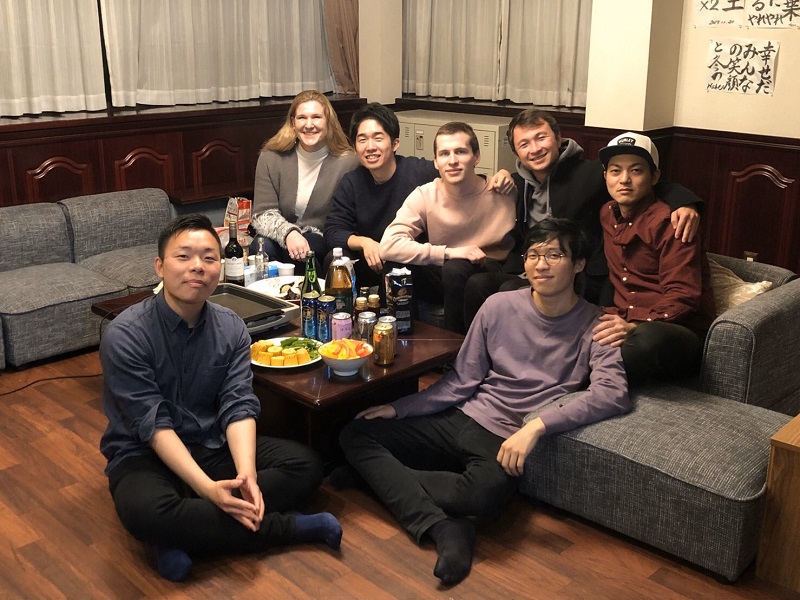
As I mentioned, when I first landed in Japan back in 2013, I had no language experience and no cultural exposure. My high school did not offer Japanese as a language, and the only foreign language experience I had was 10 years of Spanish, which certainly wasn’t going to be put to heavy use during my time in Japan. I had an “Oh, crap” moment on the plane to Japan when the reality of my situation finally settled in. With Google Maps, smartphone translators and the internet in general many of your language barrier issues will be resolved. This being said, despite there being no necessity for Japanese language ability to live here, some understanding of the Japanese language and culture comes in handy if you plan to stay or live here. Great news is that living in a BORDERLESS HOUSE, surrounded by both Japanese and foreign housemates is a quick and easy way to have a support group and language study-buddies when coming to Japan with limited language ability!
The best news is that Japan is extremely accommodating and if you are in the presence of an individual who can speak some English, chances are that this person will be more than happy to seek you out and start up a conversation. Many signs are translated into English, and restaurants sometimes even have English menus. So, even if you are not familiar with the language, you’ll be okay. However, I would again like to point out that you’ll have a much richer experience here in Japan if you are somewhat familiar with the language and culture. For example, the English menus at restaurants don’t always list the same options that are on the Japanese menu, so you just might miss out on the opportunity to try a mint chocolate chip iced latte.

Now if you plan on working here in Japan, this is a different story. As I previously touched upon in the prior section, I cannot stress the importance of having passed the JLPT Level 1 or 2 enough. Many jobs, with the exclusion of English teaching jobs, will require you to have some proof of your Japanese proficiency. Even if you are confident in your Japanese fluency, without some sort of standardized proof, you will likely not be considered for a job interview. So make sure you have done your language prep and passed some sort of standardized proof of your language ability.
Be Fearless and Take the Leap
In conclusion, I’d like to encourage all of you, no matter where you are in your language learning journey, to consider stepping out of your comfort zone and making your dreams of going abroad come true. There are so many opportunities waiting for you and so many friends, especially here at BORDERLESS HOUSE, who are waiting to meet you. I hope that my story has convinced you that there is no greater experience than going abroad and that it will help you grow in ways that you could never imagine.


